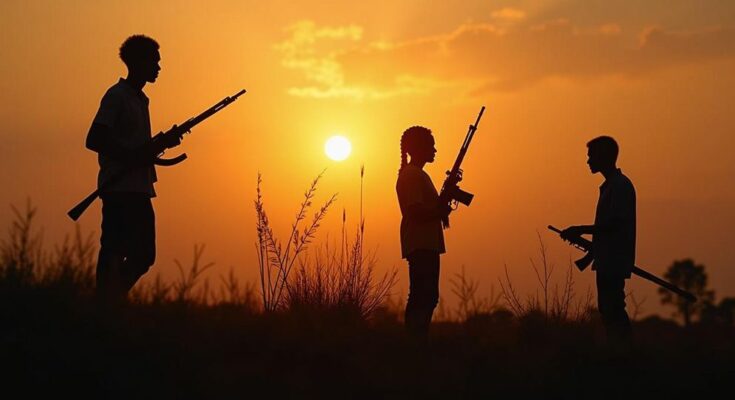This article highlights the ongoing humanitarian crises in Sudan, Haiti, and Myanmar, emphasizing the severe impacts of civil conflict, famine, gang violence, and human rights abuses. In Sudan, the civil war has resulted in massive casualties and displacement. Haiti faces a food insecurity crisis exacerbated by rampant gang activity. Myanmar endures military repression following a coup, leading to significant civilian casualties and suffering. These crises urgently require international attention and intervention.
This week, global attention is predominantly fixated on the escalating conflict in the Middle East, particularly following Iran’s missile attacks in response to Israeli military actions in Lebanon. However, this spotlight obscures the ongoing humanitarian crises in various parts of the world, notably in Sudan, Haiti, and Myanmar, where the suffering continues unabated amidst widespread neglect. In Sudan, civil war and famine are taking a catastrophic toll on the population. Radhouane Nouicer, the U.N. High Commissioner for Human Rights’ expert on Sudan, recently urged both the Sudanese Armed Forces (S.A.F.) and the Rapid Support Forces (R.S.F.) to prioritize civilian protection as hostilities intensify in greater Khartoum. Mr. Nouicer predicted that the conflict could lead to significant civilian casualties and displacement, likening the current situation to the early days of the conflict, which began in April 2023. Reports indicate that over 20,000 Sudanese have lost their lives, with estimates exceeding 150,000, as the war engulfs the country, fostering what may be the most severe humanitarian crisis globally. In Haiti, the situation is dire, with rampant gang violence exacerbating an already critical humanitarian crisis. Despite the recent deployment of Kenyan and Jamaican security forces, the gangs control approximately eighty percent of Port-au-Prince and much of the countryside, forcing over 700,000 individuals to flee their homes, including a disproportionate number of children. Recent reports reveal that almost half the Haitian population faces acute food insecurity, with thousands on the brink of starvation due to soaring food costs and disrupted agricultural systems. Furthermore, inflation has led food expenditures to comprise seventy percent of household budgets, straining families already suffering from the aftermath of natural disasters. Meanwhile, in Myanmar, civil conflict persists as the military junta, which overthrew the elected government in February 2021, continues to impose brutal repression. According to a recent U.N. report, approximately 5,350 civilians have been killed and over 3.3 million displaced amid escalating violence. The military’s disregard for human rights is troubling, with credible reports of torture, killings in custody, and systematic violence against detainees. Even as the opposition signals a readiness for negotiations, the junta’s recent overture was swiftly dismissed, indicating ongoing tensions and resistance to military rule. These crises unfolding in Sudan, Haiti, and Myanmar illustrate the dire need for international attention and humanitarian support as millions suffer in silence while global focus shifts elsewhere.
The global crises in Sudan, Haiti, and Myanmar showcase severe and ongoing humanitarian issues that have not gained substantial media attention in light of other international conflicts, particularly in the Middle East. Sudan is facing a devastating civil war and widespread famine, leading to unprecedented civilian suffering and loss of life. Haiti continues to grapple with rampant gang violence and acute food insecurity, placing millions at risk. In Myanmar, the military junta’s oppressive regime has resulted in mass casualties and human rights violations since the coup, provoking widespread civil unrest and displacement. The convergence of these crises underscores a critical need for international awareness and humanitarian intervention.
The crises engulfing Sudan, Haiti, and Myanmar exemplify the profound human suffering that persists in various global contexts, often overshadowed by other breaking news. Each region faces distinct challenges, but the commonality lies in the urgent need for international humanitarian assistance and support. Addressing these issues must become a priority, ensuring that the voices of the afflicted are heard and responded to.
Original Source: www.americamagazine.org




